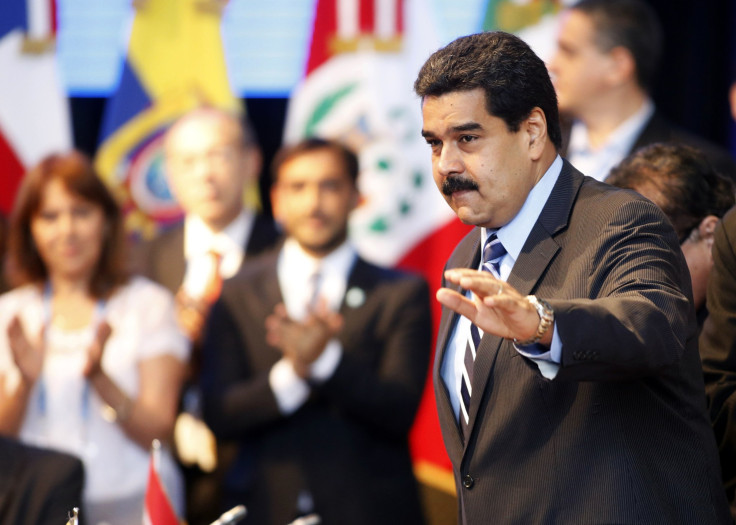US-Cuba Deal May Leave Venezuela More Isolated

News about the U.S.’ rapprochement with Cuba had leaders across Latin America bursting with applause this week. But the historic deal may leave one country out in the cold: Venezuela. President Nicolás Maduro, already facing a torrent of economic problems and dismal approval ratings, may now be facing cracks in his ideological stronghold in Latin America as Venezuela’s closest partner warms up to the United States.
“Cuba is increasingly going to focus on that relationship with the United States or at least not want to damage progress on that by echoing what Venezuela is saying,” Brookings senior fellow Harold Trinkunas said in an interview with NPR News, referencing Caracas’ often fiery rhetoric against the U.S. “On the rhetorical level, it’s going to mean that Cuba and Venezuela are going to get out of sync.”
Venezuela and Cuba have had perhaps the closest relationship in Latin America as Caracas has propped up Havana for decades with oil in exchange for a steady supply of Cuban medical professionals. But Venezuela has been hobbled by slumping oil prices in recent months, on top of already soaring inflation and chronic goods shortages. This week, U.S. President Barack Obama signed a bill authorizing sanctions against Venezuelan government officials deemed responsible for cracking down on protesters this spring, and the Fitch ratings agency downgraded Venezuela to “CCC,” indicating heightened chances of a default.
The economic gloom facing Cuba’s longtime patron has already heightened Havana’s incentive to diversify its external relations, analysts say. “You see other players other than Venezuela coming in [to Cuba], most prominently Brazil and China, a little bit of Russia, some Mexico,” Julia Sweig, senior fellow at the Council on Foreign Relations, said in a conference call with reporters this week. Havana has tried to “hedge against and maneuver around” the issue of Venezuela’s economy for some time, she added.
Meanwhile, members of Venezuela’s opposition were quick to seize on the U.S.-Cuba announcement to rail against Maduro as well. “It looks like Raúl is cheating on Nicolás,” Henrique Capriles, the governor who faced off against Maduro in a tightly contested election last year, said in an interview with Reuters. On Capriles’ Twitter account, he declared that the deal left Maduro “looking ridiculous once more” for his vitriol against the U.S.
Maduro, meanwhile, has continued to rail against the “imperialism” of the U.S., even while reserving some rare words of praise for Obama’s decision this week. Although he called the Cuba deal “perhaps the most important step of [Obama’s] presidency” and saluted his “bravery,” those words came just hours before he slammed Washington for passing a sanctions bill on Venezuelan government officials. “I repudiate the insolent measures taken by the Imperial Elite of the United States against Venezuela,” he wrote on Twitter.
© Copyright IBTimes 2024. All rights reserved.












